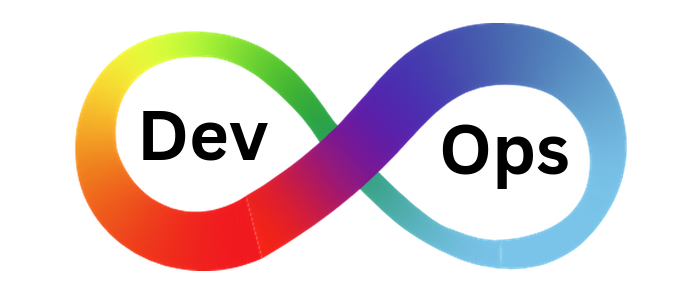Let’s discuss 5 pillars of CALMS in DevOps in this latest blog. Bobcares, as a part of our DevOps Consulting Service offers solutions to every query that comes our way.
Overview
- An Introduction to 5 Pillars of CALMS in DevOps
- 1. Culture: The Heart of DevOps
- 2. Automation: Accelerating Delivery with Quality
- 3. Lean: Continuous Improvement in Practice
- 4. Measurement: Data-Driven Decision Making
- 5. Sharing: A Culture of Knowledge Exchange
- Conclusion
An Introduction to 5 Pillars of CALMS in DevOps
In today’s fast-paced digital world, organizations are increasingly looking to DevOps to enhance collaboration, speed, and efficiency in software development. One of the most effective ways to gauge a company’s readiness for DevOps and measure its success is through the CALMS framework. CALMS stands for Culture, Automation, Lean, Measurement, and Sharing. Let’s dive deeper into how each element of CALMS can guide the DevOps transformation.

1. Culture: The Heart of DevOps
Culture is the foundation of any successful DevOps transformation. At its core, DevOps is not just about processes or tools; it’s about changing how people work together. This cultural shift must be championed by top management, with consistent leadership setting the tone for change.
The heart of DevOps culture is collaboration. No tool or automation can solve issues if the development and IT/operations teams aren’t working together effectively. DevOps is about solving human problems, not just technical ones. By fostering a shared sense of purpose and a plan to reach that goal, organizations can encourage collaboration at all levels.
Successful DevOps cultures are all-encompassing—embracing change across departments and teams. This collective effort across teams, from development to operations, ensures that DevOps is not the responsibility of just one team but the result of everyone working together towards the same objectives.
2. Automation: Accelerating Delivery with Quality
Automation is the engine driving speed and quality in DevOps. It’s not just a luxury; it’s essential for value delivery. Through automation, repetitive tasks are eliminated, systems become more reliable, and human errors are reduced. This allows organizations to deliver faster and with greater consistency, aligning with the ultimate goal of DevOps.
Moreover, automation frees up human resources to focus on high-value tasks that require creativity and critical thinking, such as problem-solving and innovation. It also ensures that testing, bug detection, and security measures are executed more rigorously than manual processes could ever achieve.
3. Lean: Continuous Improvement in Practice
Lean in DevOps refers to both a cultural mindset and a practical approach to automation. The philosophy behind Lean encourages continuous improvement at every level—whether it’s through retrospectives to enhance team processes or through smaller, more manageable tasks that improve efficiency.
The Lean mindset thrives on visualizing work in progress (WIP), limiting batch sizes, and managing queue lengths to reduce waste and optimize processes. In a DevOps environment, Lean helps teams identify bottlenecks and areas for improvement, ensuring that every action adds value to the end product.
4. Measurement: Data-Driven Decision Making
In DevOps, measurement is essential to track progress and ensure informed decisions. Rapid iteration only works when teams have a clear sense of direction. This is where data plays a crucial role. By continuously measuring key metrics, teams can make fact-based decisions that drive improvements and adjustments.
An organization must track everything from deployment frequency to lead time and failure rates. The more data collected, the better the insights into what works and what doesn’t. However, sharing this data within and across teams is equally important. When data is transparent and accessible, it allows all teams and stakeholders to align on goals, identify challenges, and create effective roadmaps for success.
5. Sharing: A Culture of Knowledge Exchange
The final element of CALMS, Sharing, is perhaps one of the most important. Knowledge sharing—whether it’s lessons learned, best practices, or innovative solutions—is vital for the success of any DevOps initiative. When teams collaborate and share insights freely, they strengthen the organization as a whole, fostering a culture of continuous learning.
A strong culture of sharing promotes better communication, reduces duplication of effort, and accelerates innovation. By making knowledge accessible, teams can solve problems more efficiently, improve processes, and ultimately drive higher performance across the organization.
[Want to learn more? Reach out to us if you have any further questions.]
Conclusion
In summary, DevOps is about more than just deploying software faster. It’s about transforming the company’s culture to:
- Move faster
- Become more efficient
- Collaborate more effectively
By embracing the five principles of the CALMS framework—Culture, Automation, Lean, Measurement, and Sharing—organizations can unlock the true potential of DevOps. The integration of these elements creates a harmonious and productive environment where teams collaborate seamlessly, automation accelerates delivery, and continuous improvement drives success. The CALMS framework isn’t just a methodology; it’s the blueprint for a modern, agile organization ready to face the challenges of tomorrow.







0 Comments